Energy Management
The residential consumer can save energy and money, while improving their home’s comfort and helping the environment by making their home more energy efficient. Energy efficiency is using less to provide the same service. For example, replacing incandescent lights with LED bulbs, uses much less energy to produce the same amount of light. Turning off a light is energy conservation.
There are many steps a consumer can begin to focus on to become more energy efficient. One could start with a Home Energy Rating, which is a measurement of a home’s energy efficiency. Ratings provide an energy use index called the HERS Index, (Home Energy Rating System). This could be used for either existing homes or new homes.
The home energy rater reviews the home to identify its energy characteristic, such as insulation levels, window efficiency, wall-to-window ratio, heating and cooling system efficiency, solar orientation of the home, and the water heating system. Performance testing, such as a blower door test for air leakage and duct leakage, is usually part of the rating.
Links
Nebraska Energy Office – neo.ne.gov
Energy Management – University of Iowa – Facilities.uiowa.edu

